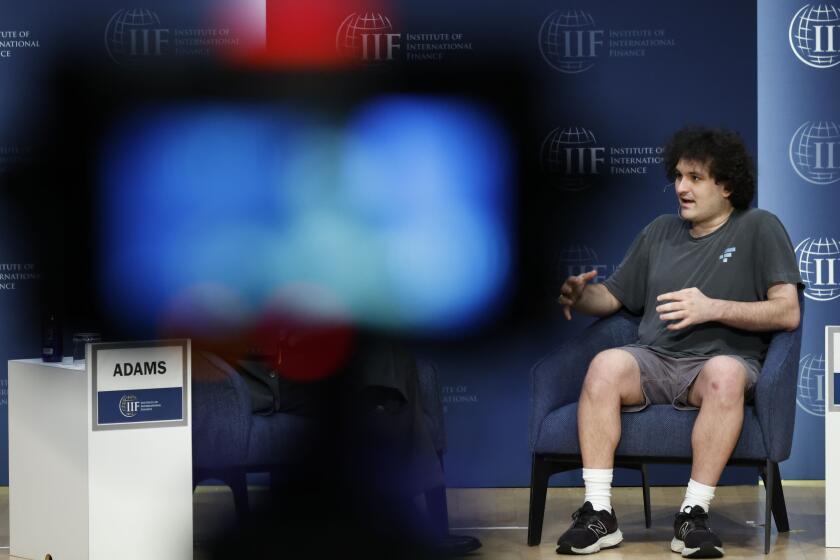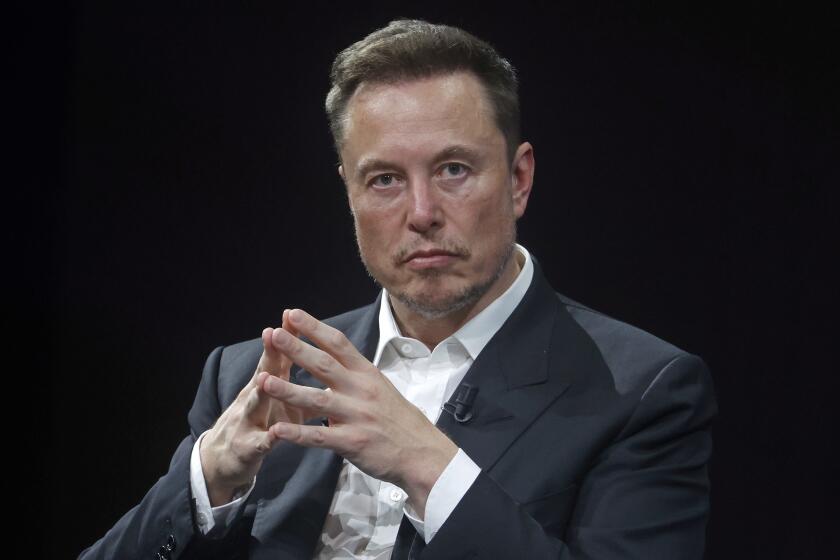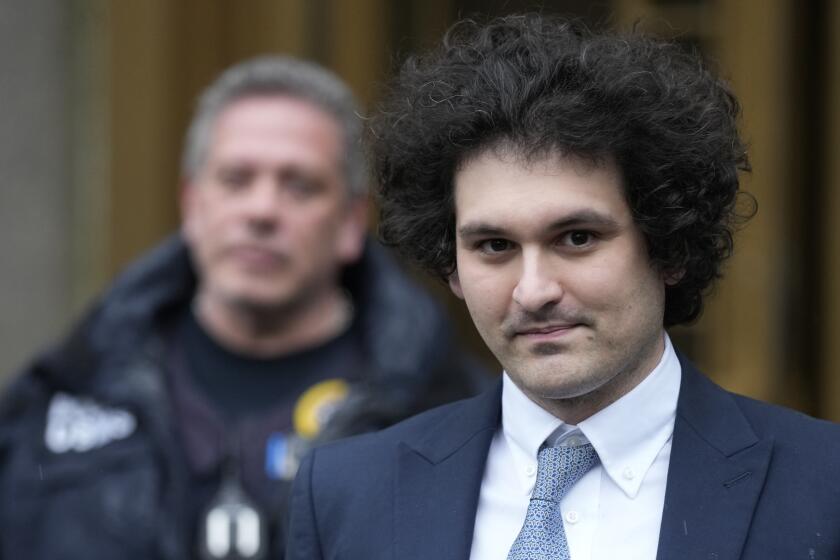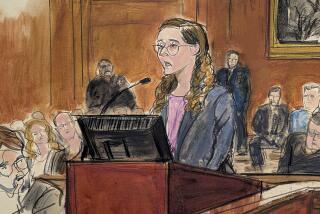What you won’t learn from Michael Lewis’ book on FTX could fill another book
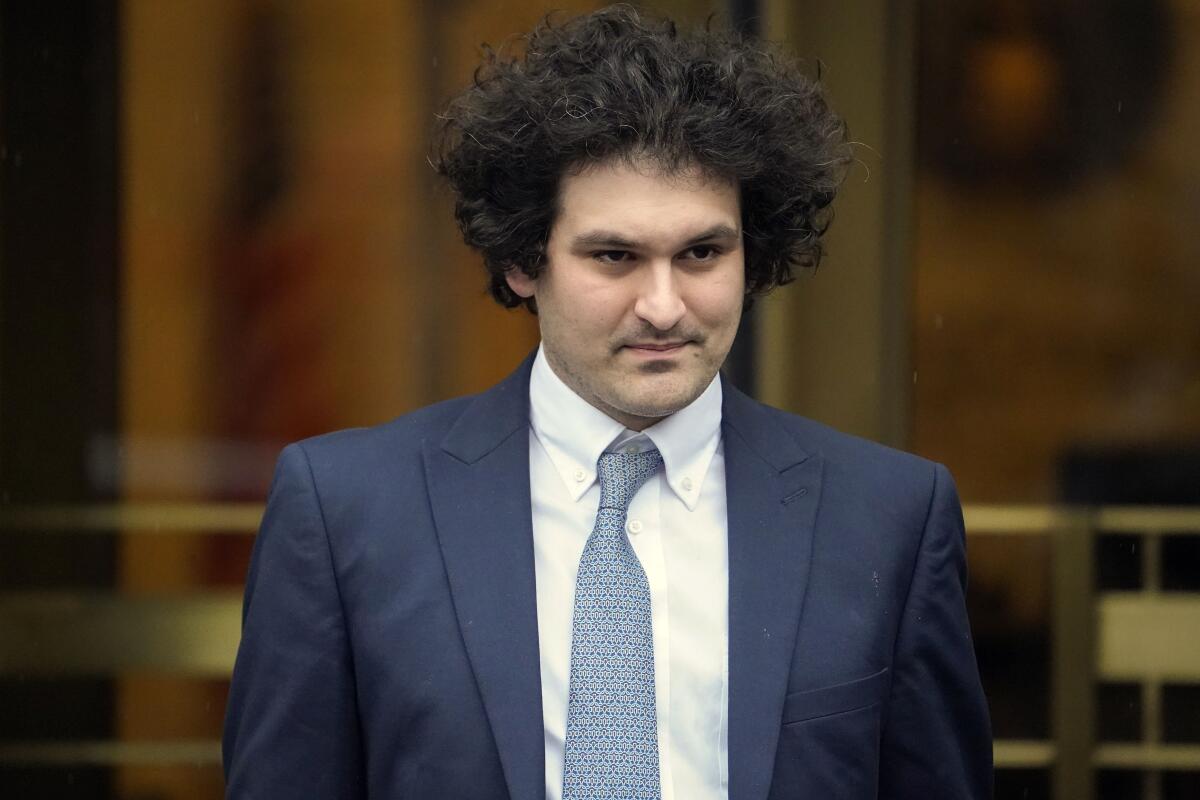
- Share via
Review
Going Infinite: The Rise and Fall of a New Tycoon
By Michael Lewis
Norton: 288 pages, $30
If you buy books linked on our site, The Times may earn a commission from Bookshop.org, whose fees support independent bookstores.
“In a lot of ways,” the cryptocurrency tycoon Sam Bankman-Fried wrote to his frustrated girlfriend, Caroline Ellison, “I don’t really have a soul.” In fact, “there’s a pretty decent argument that my empathy is fake, my feelings are fake, my facial reactions are fake.”
That confession is among the revelations of “Going Infinite,” Michael Lewis’ well-timed, if unsatisfyingly convoluted, account of Bankman-Fried and the crypto businesses he built and tanked. The book’s Oct. 3 publication coincides with the start of Bankman-Fried’s federal trial on seven counts of fraud and money laundering. Ellison, both a close business associate and a woman spurned, took a plea deal and is now a likely witness against him.
Intended as a rebuttal to his girlfriend’s desire for both a deeper and more public relationship, Bankman-Fried’s memo to Ellison might conceivably have overstated his characterological deficits. Except that the sentiments it expresses are entirely consistent with Lewis’ portrait of the easily distractible, game-obsessed, brilliant, slovenly, cargo-shorts-clad eccentric whose most singular talent was his skill at calculating probabilities in a condition of constantly changing rules.
The ridiculous story of Sam Bankman-Fried, FTX and cryptocurrency generally is aired in two new books, but only one is worth reading and it’s not by bestselling author Michael Lewis.
At one point, Bankman-Fried, the son of two Stanford law professors and founder of the hedge fund Alameda Research and the cryptocurrency exchange FTX, was considered the richest person in the world under 30. He was also a devotee of a movement called “effective altruism,” determined to give much of his prodigious wealth away to worthy causes, from pandemic prevention to the preservation of American democracy. So how exactly did it all come undone?

Beginning with the sardonic “Liar’s Poker,” about his own Wall Street adventures, Lewis has carved a bestselling career (“The Big Short,” “Moneyball”) as a chronicler of quirky visionaries and statistical and financial wizards. He’s a wry, engaging writer and a gifted storyteller, even if he sometimes seems too enamored of his sources. (Former NFL offensive lineman Michael Oher recently sued a Memphis family, the Tuohys, in a meltdown of a relationship Lewis had described glowingly in a 2006 book, “The Blind Side,” later an Oscar-winning film.)
Lewis would seem to have found an ideal subject in Bankman-Fried, whom the author first met at the behest of a friend looking to invest in FTX. (Why the friend himself couldn’t meet with Bankman-Fried is unclear.) Following a walk-and-talk, Lewis was impressed — “totally sold,” he writes. “His ambition was grandiose, but he wasn’t.”
Bankman-Fried, however notable for his absence of normal human emotions, must have been impressed as well. He allowed Lewis to shadow him for more than a year as his cryptocurrency empire first flourished, then collapsed. Lewis is able to capture vivid scenes of FTX’s abandoned Bahamas headquarters after the flight of its employees — a desolate, Pompeii-like vista of abruptly interrupted lives.
Call it the ‘Isaacson Accord’: the agreement behind Walter Isaacson biographies, including ‘Elon Musk,’ to leave the assumption of difficult genius untouched.
If you’re looking for a definitive take on Bankman-Fried’s possible guilt or innocence, you won’t find it in “Going Infinite,” whose title refers to SBF’s seemingly boundless financial ambitions. Lewis does make at least one relevant assertion — that FTX was arguably solvent right up until its collapse, and that the more than $8 billion prosecutors said was missing was, by Lewis’ own “naive money-in, money-out” calculation, “still there.”
The relationship between FTX and Alameda, which traded on the exchange and also borrowed (or purloined) customers’ deposits from it, is at the core of the case. That relationship was complex and perhaps illicit, and, like much else in this speculative financial world, too complicated for a layperson to understand.
What is clear is that Bankman-Fried’s woefully incompetent management style — well-documented by Lewis — and equally messy personal life contributed to his plight. Ellison, Alameda’s CEO, wasn’t even talking to him when a run on FTX deposits triggered by a crypto rival provoked the November 2022 crisis, subsequent FTX bankruptcy and current court case.
Too often, though, “Going Infinite” is labyrinthine and downright arcane. Lewis doesn’t do his usual stellar job of explanatory journalism when it comes to the intricacies of cryptocurrencies — code-protected digital assets, most famously Bitcoin, that sub for conventional money — or the exchanges on which they are traded. In one footnote, Lewis seems to throw up his hands at the prospect. “What is curious,” he writes, “is how elusive Bitcoin is, as a thing to understand. Bitcoin often gets explained but somehow never stays explained.”
The trial of Bankman-Fried, the founder of the failed cryptocurrency brokerage FTX, will begin Tuesday with jury selection.
Some of the confusion could have been alleviated by more thoughtful editing. Lewis, for instance, mentions “blockchains” several times before bothering, on page 246, to define the term as “communally maintained records of who owned what and when they’d owned it.”
If you don’t care about any of this — I didn’t, and still don’t — there are nevertheless some real rewards to plowing through Lewis’ latest nonfiction narrative.
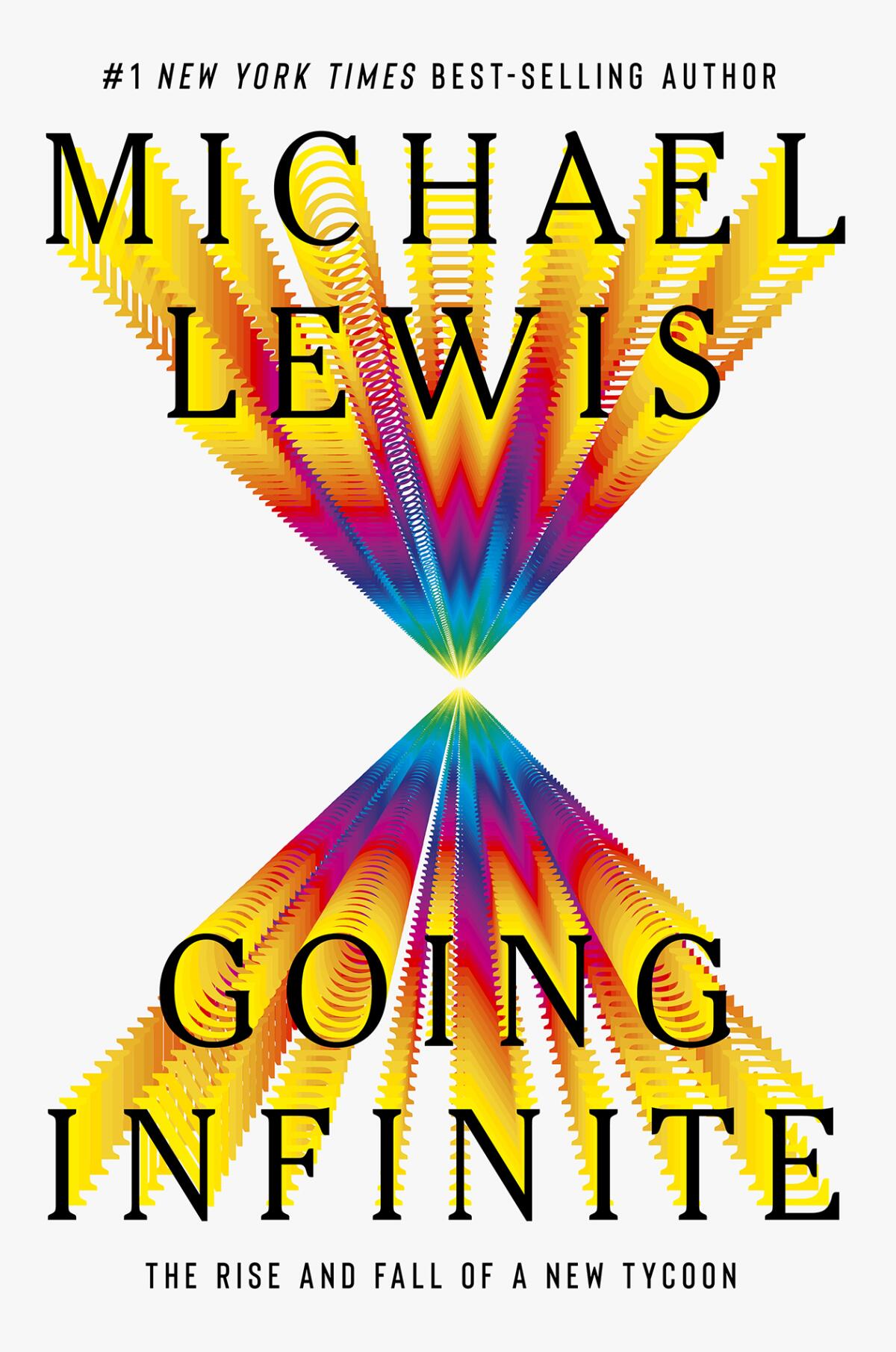
He gives us an unsettling, fly-on-the-wall perspective on a Zoom call between Bankman-Fried and Vogue editor Anna Wintour, who wants the world’s least fashion-conscious billionaire to sponsor and attend the Met Gala. In Lewis’ telling, Bankman-Fried initially has no idea who Wintour is, and spends much of the call playing his favorite video game, “Storybook Brawl.”
It is fascinating to learn that Bankman-Fried, his Democratic sympathies notwithstanding, was willing, in concert with Senate Minority Leader Mitch McConnell, to allot soft-money millions to defeating hard-core MAGA Republicans in congressional primaries. (He also threw millions of dollars at sports figures such as quarterback Tom Brady and NBC star Steph Curry to raise FTX’s profile.)
What the legal tangle among the subjects of ‘The Blind Side’ leaves out is what author Michael Lewis omitted: how football exploits Black players from the start.
Most intriguingly, Bankman-Fried was apparently prepared to bribe Donald J. Trump not to run for president again — an outcome he says he learned through a backchannel would have cost $5 billion. In a recent “60 Minutes” interview, Lewis said the two sides “were still having these conversations when FTX blew up.”
In the end, Lewis does manage to convey SBF’s psychological peculiarities, a clear example of what we now politely call neurodiversity. His charisma, however, seems harder to capture. Money, of course, is always a lure. But exactly how this bizarre child-man was able to seduce so many people into following him around the world into unregulated, unhinged and possibly illegal enterprises remains a mystery.
Klein is a cultural reporter and critic in Philadelphia.
More to Read
Sign up for our Book Club newsletter
Get the latest news, events and more from the Los Angeles Times Book Club, and help us get L.A. reading and talking.
You may occasionally receive promotional content from the Los Angeles Times.
